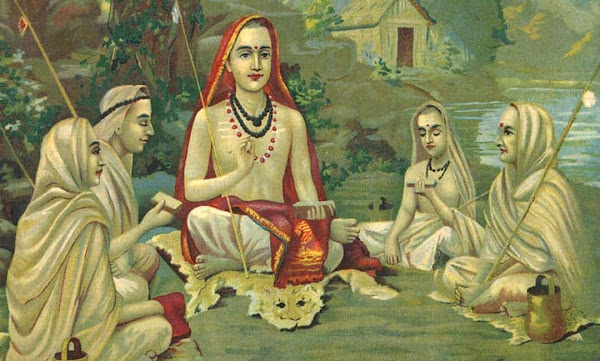Travel as Therapy: Healing Through the Five Koshas
Travel as Therapy: Healing Through the Five Koshas
In the fast-paced rhythm of modern life, travel is often seen as leisure, but through the lens of Vedanta, it unfolds as Chikitsa (therapy). The Panchakosha theory of the Upanishads explains human existence in five layers — Annamaya, Pranamaya, Manomaya, Vijnanamaya, and Anandamaya kosha. Travel, when mindfully experienced, nourishes each of these koshas, leading to holistic healing.
_______________________________________________________________________________________________________________________________________________________________________________________________________________________
1. Annamaya Kosha – Journey Alongside Rivers
The Annamaya kosha is the physical sheath, sustained by food and environment. Traveling alongside rivers—whether it is the Ganga, Kaveri, or Narmada—revitalizes the body. The flowing water symbolizes renewal, washing away fatigue, and grounding us in nature’s rhythm. Walking, boating, or simply sitting near rivers strengthens the body while offering fresh prana through clean air and fertile surroundings.
______________________________________________________________________________________________________________________________________________________________________________________________________________________
2. Pranamaya Kosha – Rejuvenation at the Beach
The Pranamaya kosha, the energy sheath, is nourished by the life force (prana). Beaches, with their endless waves and salty breezes, amplify this kosha. Breathing in synchrony with the tide enhances lung capacity, balances energy channels, and calms the nervous system. Watching sunrise or sunset over the ocean creates an inner balance that harmonizes breath, energy, and emotion.
_____________________________________________________________________________________________________________________________________________________________________________________________________________________
3. Manomaya Kosha – Clarity in the Mountains
The Manomaya kosha relates to the mind and emotions. Mountain climbing or trekking challenges the mind, demanding focus, courage, and resilience. As the altitude rises, distractions fall away. The vast expanse of the Himalayas or the Western Ghats silences mental chatter, allowing deep introspection. The solitude of the mountains heals anxieties and fosters emotional strength.
_____________________________________________________________________________________________________________________________________________________________________________________________________________________
4. Vijnanamaya Kosha – Wisdom Through Temple Visits
The Vijnanamaya kosha is the sheath of wisdom, discernment, and higher knowledge. Visiting temples—be it the spiritual silence of Kedarnath, the intricate wisdom of Chidambaram, or the cosmic geometry of Konark—awakens higher awareness. Temple architecture, sacred chants, and rituals expand intellectual clarity and spiritual reasoning, reminding us of our place in the cosmos.
______________________________________________________________________________________________________________________________________________________________________________________________________________________
5. Anandamaya Kosha – Bliss in Wilderness Meditation
The Anandamaya kosha, the innermost sheath, is bliss itself. Meditation amidst forests, waterfalls, or wilderness connects us directly with the Self. Here, silence becomes the greatest teacher. This kosha is awakened not by doing, but by simply being—sitting quietly in nature, experiencing the oneness of life, and tasting eternal bliss.
________________________________________________________________________________________________________________________________________________________________________________________________________________________
Why Wilderness Therapy Rose After the Pandemic
The COVID-19 pandemic confined people indoors, intensifying stress, anxiety, and digital fatigue. Post-pandemic, individuals sought healing in wilderness therapy—structured time in forests, mountains, riversides, and beaches. Nature became the safest space for recovery, offering:
Psychological relief: reduced anxiety, depression, and loneliness.
Physical revival: improved immunity, fitness, and sleep cycles.
Spiritual anchoring: rediscovery of meaning and connectedness.
Wilderness therapy gained popularity because it restored what lockdowns had stripped away: freedom, breath, community, and silence.
Upanishadic Backing
The Panchakosha model is explained in the Taittiriya Upanishad (Brahmananda Valli, Ananda Valli).
It details the five sheaths as progressive layers from gross to subtle, guiding seekers from bodily existence (annamaya) to pure bliss (anandamaya).
The Prashna Upanishad discusses prana as the sustaining force of life.
The Chandogya Upanishad emphasizes meditation in nature and harmony with the environment.
The Mundaka Upanishad likens the soul’s journey to rivers merging with the ocean, resonating with travel along rivers.
These texts show that wellness is not just in medicines but in immersive experiences of nature, self, and spirit.
________________________________________________________________________________________________________________________________________________________________________________________________________________________
Travel, when seen through the wisdom of the Panchakosha, becomes more than sightseeing—it transforms into therapy for the body, energy, mind, intellect, and soul. Just as the Upanishads encourage a layered approach to self-realization, mindful travel layers healing into our existence. Post-pandemic, wilderness therapy revived our primal bond with the earth, reminding us that to journey outward is also to journey inward.




Comments
Post a Comment